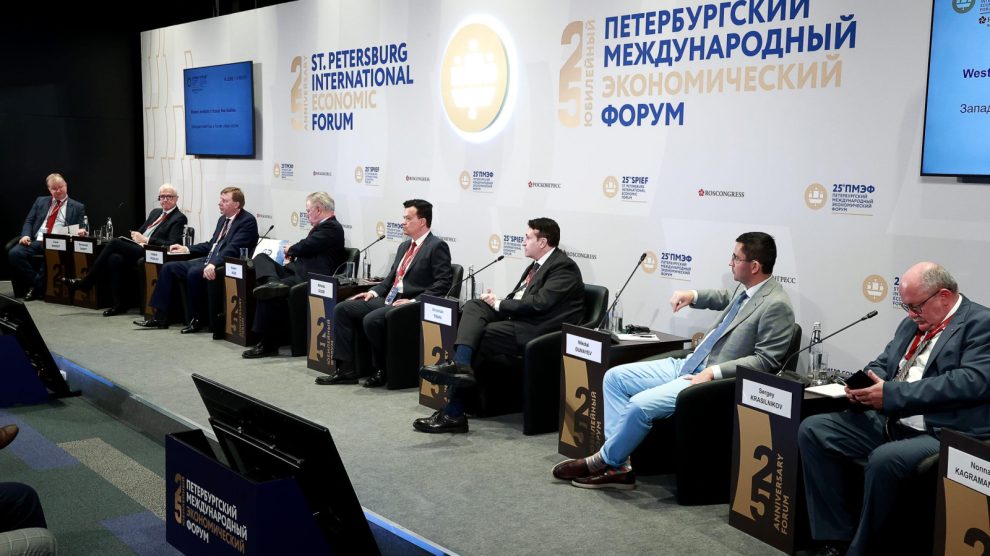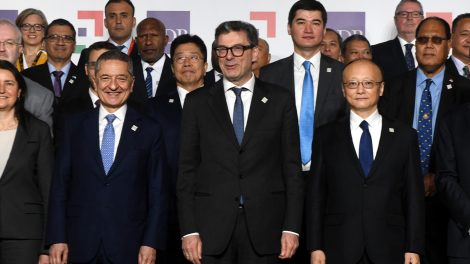Better get out. After the Kremlin initiated the invasion of Ukraine, a majority of Italian companies operating in Russia have followed the wider Western trend of ceasing their business, scaling back to the bare minimum or announcing plans to do either.
- According to Yale University’s list of major Western firms in Russia, only 16 out of 39 major Italian brands are still completely open for business in Russia.
- As it turns out, the benefits of leaving end up offsetting the costs of doing so, as a recent Yale paper demonstrated: equity markets tend to reward companies that get out and punish those that remain.
Enel’s out too. Italy’s State-participated utility company, who had said it would exit the country back in March, is officially leaving. On Thursday the company announced it had sold to Russian-controlled entities the entirety of its stake in its Russian subsidiary, Enel Russia.
- “Following completion of the transaction, Enel will dispose of all its Russian power generation assets, which include approximately 5.6 GW of conventional capacity and around 300 MW of wind capacity at different stages of development,” reads the press release.
- The closing is expected within the third quarter of 2022 and it’s still subject to clearance by Russian authorities. Enel says selling its assets will generate roughly €550 million and shed €1.3 billion off its net income, most of it because of the release of a currency reserve.
But some are kissing Putin’s ring. There’s no other interpretation for the presence of Confindustria executives in St. Petersburg’s Economic Forum, Russia’s Davos-like event, which has been heavily boycotted by Western companies this year.
- While Prime Minister Mario Draghi was in Kyiv to express Italy’s support, the head of Confindustria Russia Alfredo Gozzi was speaking on St. Petersburg’s stage, followed by the leader of the Italian-Russian Chamber of Commerce Vincenzo Trani.
- Both lauded the Italian companies that chose to continue their Russian operations and assured the audience that they intended to stay.
Small businesses, big embarrassment. When asked about Italy preserving both its geopolitical position and its ties to the Russian marked, Mr Gozzi replied that small and medium enterprises (SMEs) are the country’s secret sauce. And he was met with applause.
- “Most Italian SMEs have not left Russia so far. They want to continue working with Russian companies, to stay in the market,” he said, praising their adaptability and flexibility in the face of adverse market conditions and noting that they were being burned by Western sanctions. “I’m not saying whether [the sanctions are] fair or unfair, it’s an objective fact,” he added.
- He even went as far as suggesting that Russia should take a page out of the Italian model to allow foreign SMEs to flourish in the new Russian market, where big national companies are replacing the Western firms that flee.
- “Politics cannot enter business,” said Mr Trani later; “when businessmen become politicians and vice versa, it cannot work […] Most of our companies continue to operate. Not because they approve of the current situation, but because they have a different approach.”
Stubbornly Russian. The interventions of the two Italian businessmen were essentially geared at reassuring the Russian establishment of a simple fact: some Italian companies, especially out-of-sight SMEs, want to carry on doing business as usual, regardless of the opinion of the Italian public and authorities. “We are the bridge between Italy and Russia. And we suffer when we see that this bridge is ruined,” concluded Mr Trani.
Image: Sergei Fadeichev/TASS Photobank, St. Petersburg International Economic Forum. Mr Gozzi and Mr Trani are sat at the centre.




